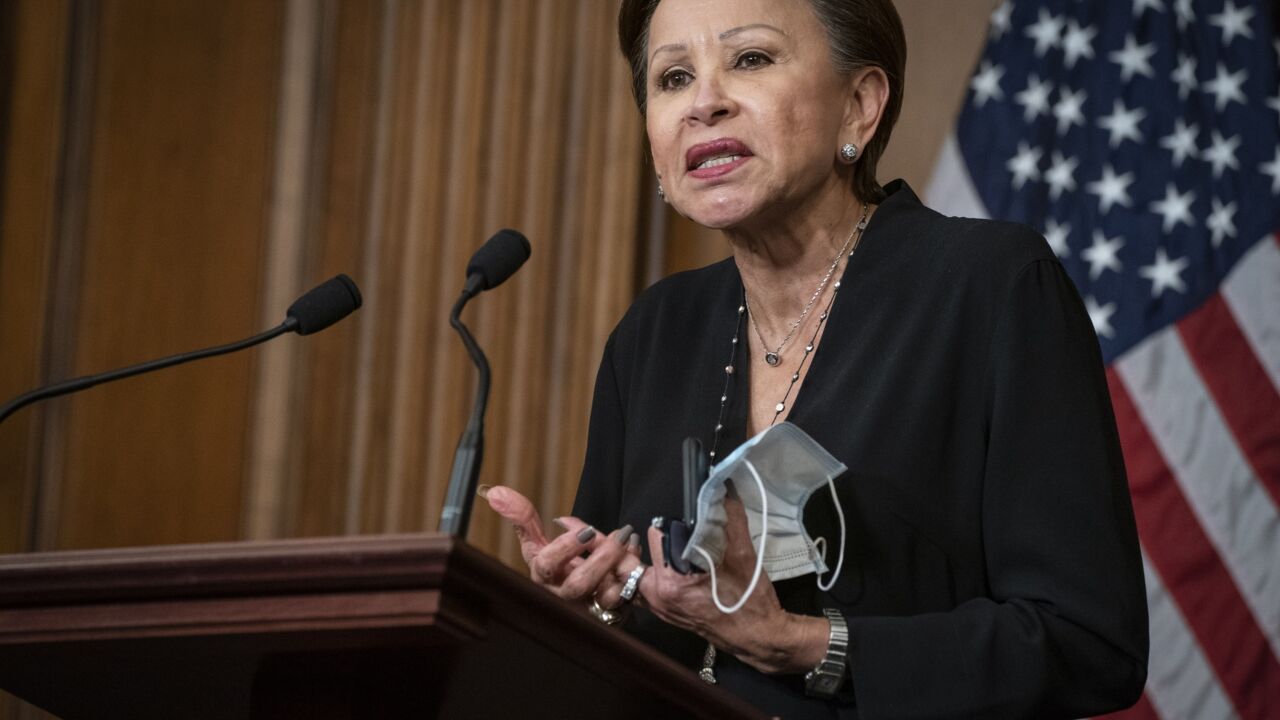-
Lawmakers this week will continue to discuss extending the Paycheck Protection Program, and the National Credit Union Administration is scheduled to hold its monthly board meeting.
March 15 -
With a steady stream of Senate hearings held on the racial wealth gap and inequities in the financial system, the new chairman has set a consumer-focused agenda that leans further left than even past Democratic chairs.
March 15 -
The legislation would extend the Paycheck Protection Program for two months and give the Small Business Administration more time to remedy persistent system glitches that have delayed the processing of thousands of loan applications.
March 11 -
Credit scores have an effect on almost every aspect of a person's financial life. A less-than-ideal credit score can make it much harder to get a house or car loan, start a business, or even get a job. President Biden plans to change credit reporting So what does the new administration's plan mean for consumers and lenders? In this episode, we explore the pros and cons of the Biden proposal, what it means for consumers, and how it will impact lending institutions' strategy and operations.
-
The American Bankers Association has requested more time to respond to a proposal that would expand lending authority for credit union service organizations.
March 9 -
-
The industry saw deposits rise by nearly 20% last year, in part due to economic stimulus measures from the government. More of the same could be coming once President Biden signs the latest stimulus bill into law.
March 8 -
In remarks at CUNA’s online Governmental Affairs Conference, the chairman of the National Credit Union Administration called for the creation of new initiatives around compliance for fair credit reporting and truth in lending.
March 3 -
The industry will have to contend with thin margins on either side of the aisle in Congress and new priorities from regulators, experts said in a panel discussion held as part of CUNA's online Governmental Affairs Conference.
March 2 -
The pandemic is likely to dominate the discussion during CUNA’s online Governmental Affairs Conference, but perennial issues such as the industry’s tax exemption will also be spotlighted.
March 1 -
The Credit Union National Association’s Governmental Affairs Conference, normally the industry's biggest annual event, will be held this week in a virtual setting, a change that would have seemed unthinkable one year ago.
March 1 -
The sale has revived a long-running feud between former chairmen Mark McWatters and Rodney Hood, who tweeted, "Credit unions deserve better stewardship of agency resources.”
February 22 -
Todd Harper, chairman of the National Credit Union Administration, said new assessments are likely needed because of an influx of deposits, but industry groups and other board members say the agency should wait to see if the reserve ratio recovers on its own.
February 18 -
The nod from the Federal Reserve is seen as a significant step toward eventually freeing the bank from a 2018 order that imposed a cap on its assets.
February 17 -
In a book that was decades in the making, retired law professor Art Wilmarth tells the story of the Glass-Steagall Act — its origins, demise and aftermath. He also makes a case for restoring the separation between banks and securities firms, arguing that erecting such a barrier would reduce systemic risk and weaken the big banks’ political power.
February 16 -
A plan to make expansion easier for credit unions is getting pushback not just from bankers, but also from the regulator's current chairman and a former board member.
February 12 -
The working group's final report is still forthcoming, but the trade association has already begun assembling a new team focused on the industry's digitization efforts in the wake of the pandemic.
February 8 -
The enforcement action, which concerned deficiencies in the auto lender’s compliance risk management program, was the last remaining regulatory matter Santander had to resolve.
February 4 -
Come away better prepared for what’s ahead after hearing Satish Kini and David Sewell of Debevoise & Plimpton and Darin Jarrett, Deputy BSA/AML Officer at American Express, in conversation with Bonnie McGeer, Executive Editor of American Banker, as they explore: •How the new administration might change the BSA/AML Act •Are there easy wins in relieving the burden of suspicious activity reports without undermining effectiveness? •New ways that companies are innovating within AML compliance and risk •What banks are doing to drive next-gen efficiency and effectiveness of risk and compliance
-
The rule, finalized in the waning days of the Trump administration and scheduled to take effect in April, would have punished banks for denying services to certain firms without documented reasons for doing so.
January 28













